|
For larger print text or to download, click the PDF file below.
Holy SaturdayThroughout the year, the Southern New England Conference of the United Church of Christ reproduces the Daily Lectionary for use by churches. These are the suggested readings for April 16th, Holy Saturday: Job 14:1-14 or Lamentations 3:1-9, 19-24; Psalm 31:1-4, 15-16; Matthew 27:57-66 or John 19:38-42; and 1 Peter 4:1-8. I would encourage you to read these short selections as part of your Lenten practice.
Today is the last day of Lent. On Good Friday, Jesus died on the cross, His corpse was removed and placed rather unceremoniously in a nearby tomb, and it was left there. The story of Jesus of Nazareth seemed to have reached its end in the darkness of that tomb. The next day was the sabbath within the celebration of Passover. According to Mosaic Law, all work ceased. It was a day of rest. The body continued to lay lifeless in the darkness of the tomb. This is the only Gospel account of Jesus being passive, and there could be significant meaning in this. Jesus may have “emptied himself” of the signs of His divinity as it says in Philippians, but not of divinity itself. It’s as if a king were to walk among his people dressed as a commoner as told in fables and Hollywood, but he still remains the king. God, in and through Jesus, experiences the reality of death and separation. On Holy Saturday, as Jesus lies dead in the tomb, God knows what lifelessness is. As Jesus lies in the tomb, God knows the pain and sorrow of separation. In the book “The Crucified God,” Jurgen Moltmann argues that such things do not infringe upon the omnipotence of God when God chooses to allow such things. When God chooses to enter our world as one of us and empties Himself of the privileges of divinity, this plays out throughout the life of Jesus, which includes the death of Jesus on the cross, which includes the passivity of lying dead in the dark tomb. We cannot know the thoughts and feelings of God. It would be presumptuous to even dare to imagine we could, but we can play forward what God reveals of Himself in and through Jesus. The reality of Jesus’ human nature need not end in the tomb. God, in and through Jesus, has experienced human life, and therefore, it may not be beyond the pale to posit that God, in and through Jesus, also has experienced death. And this is where Lent ends, in the passivity of Jesus’ dark tomb. As Christians in 2022, it is impossible to separate Lent from Easter, but if we try, we can foster a better sense of the power of the cross and the tomb, and from this place of despair we can then share more joyfully in the wonder and hope and triumph that is the unexpected Easter. I pray that our Lenten journeys have been meaningful and also challenging. I hope in the words of today’s last Bible selection of Lent that these 46 days (40 days of Lent plus six Lenten Sundays) have prepared us “so as to live for the rest of your earthly life no longer by human desires but by the will of God.” And where Lent ends, Easter begins. Please know that whoever you and wherever you may be on your spiritual journey, you are invited to join us as we announce and celebrate the empty tomb tomorrow first at our Sunrise Service at 6AM and then in church at our regular time. Let us proclaim together as church that Christ is risen. Christ is risen indeed. Alleluia. Amen. If you’d like, here is the link to the Southern New England Conference’s daily reading schedule: www.sneucc.org/lectionary. Good FridayThroughout the year, the Southern New England Conference of the United Church of Christ reproduces the Daily Lectionary for use by churches. These are the suggested readings for April 15th, Good Friday: Psalm 22; Isaiah 52:13—53:12; John 18:1—19:42; and Hebrews 10:16-25. I would encourage you to read these short selections as part of your Lenten practice.
Today’s readings are much longer than usual, but today is a most unusual day. This is the day when the church remembers Jesus’ tortured death on the cross. It is hoped that on such a day we would choose to devote more time to our faith. It is for this reason that the church building will be open from noon until 3PM today for private prayer and meditation. We read in the Gospels that Jesus was crucified at 9AM, the skies grew dark at noon, and Jesus died at 3PM. I encourage you to use our sanctuary as part of your Good Friday practice. Place has meaning. To feel the quiet and calm of the place can only help us feel closer to Christ. And for over 300 years people of faith have come to this place to express and uplift their souls. I don’t know how, but it feels like they’ve added something of themselves to this House of God. I believe we need places of sanctuary, especially now in our world. There are so many news stories that just weigh so heavily upon the soul. In today’s Gospel selection, Jesus tells Pilate, “‘Everyone who belongs to the truth listens to my voice.” To which Pilate responds from the weariness of a constantly challenged soul: “‘What is truth?’” I don’t hear this as a deeply philosophical question. I think it’s more the ennui of a politician who must present different realities to different parties. It’s almost like Pilate is saying, “I’ve told so many lies to so many people so often that I don’t even know what the truth is any longer.” Pulling Pilate’s example into our world, I wonder how it is possible for Russian leaders to order crimes against humanity to be committed en masse by forces under their control and then to stand up and testify that these heinous actions could not possibly be committed by our forces. They see them as unjustifiable savagery, and yet have no compunction to continue to act in that way. How do they reconcile their denials of these atrocities as inhumane while simultaneously knowing that they were and will continue to be committed? Don’t they realize that they themselves are inhumane? Don’t they hear their own words? Or have they taught themselves that what they say does not matter. It must be morally exhausting to play this game day in and day out, and I think such hollowed-out people are represented in Pilate’s question, “‘What is truth?’” In the Gospel account, it was only hours earlier that Jesus had stated emphatically, “‘[Father] [s]anctify them in truth. Your word is truth.’” (17:17) Again, this is not meant to be a philosophical debate. John is here presenting us with a fundamental choice. Is our truth self-serving and basically untrustworthy as in the example of Pilate’s question, or is our truth the abiding Word of God? If it is the Word of God, we should be able to see in the cross Jesus’ complete commitment to that truth. Jesus will not resort even to the self-defense as violence represented by the harm inflicted on Malchus. Jesus’ dedication to the truth of the gospel is complete, even to the point of His hanging on the cross. What a contrast to Pilate and all those whom Pilate represents. On this Good Friday, hopefully we will find the time to look up at Jesus from the foot of the cross, and to there be able to let Jesus know that His truth matters. We may not be able to be as fully committed to the truth as Jesus, but in our crucified Saviour we have an ideal to follow, an example to help make us better people. The cross is not an isolated event in Jesus’ life. It is the completion of Jesus’ life. It is the last and finest of Jesus’ gospel proclamations. As we arrive at the end of our Lenten journey, it is the time to ponder Jesus’ truth and our response to it. May we give Jesus the time today to think about what His truth means. If you’d like, here is the link to the Southern New England Conference’s daily reading schedule: www.sneucc.org/lectionary. Maundy ThursdayThroughout the year, the Southern New England Conference of the United Church of Christ reproduces the Daily Lectionary for use by churches. These are the suggested readings for April 14th, Maundy Thursday: Exodus 12:1-14; Psalm 116:1-2, 12-19; John 13:1-17, 31b-35; and 1 Corinthians 11:23-26. I would encourage you to read these short selections as part of your Lenten practice.
Today is Maundy Thursday. The name comes from the Latin word for commandment, and the commandment comes from today’s Gospel where we read: “‘I give you a new commandment, that you love one another. Just as I have loved you, you also should love one another. By this everyone will know that you are my disciples, if you have love for one another.’” A little background: In the three earlier Gospels of Matthew, Mark and Luke, Jesus institutes the sacrament of Holy Communion at the Last Supper. This is why in this evening’s liturgy we will share in Communion. However, John takes a different tack when it comes to this matter. Unlike the other three Gospels, the Johannine Jesus does not offer the words of institution at the Last Supper and say, “Do this in remembrance of me.” Rather, in John, the miraculous feeding of the 5,000 is linked with Communion imagery as Jesus pronounces, “‘I am the bread of life.’” (6:48) He then proceeds to reveal, “‘… and the bread that I will give for the life of the world is my flesh … Those who eat my flesh and drink my blood abide in me, and I in them.’” (6:51, 56) John chooses to take the Communion language out of the closed Upper Room and share it more broadly among 5,000 men. This happened not at Jesus’ last Passover, but at His second Passover (cf. 2:13; 6:4). And unlike the other Gospel accounts of the miraculous feeding, John makes sure to let us know that Jesus gave thanks over the bread and then Jesus Himself distributes the bread among all who are gathered. There is no intermediary between Jesus and recipient. It is Jesus who shares Himself with those gathered, and those gathered are not Jesus’ most stalwart followers. Among the 5,000 are many who do not understand Jesus. John infers that this large mass of men is ready to go to battle with Jesus at their head. They assume that Jesus is the Messiah, but that this is a Davidic-type leader ready for war. John writes: “When Jesus realized that they were about to come and take him by force to make him king …” (6:15) Thus, John presents his Communion language among a vastly larger crowd than those in the Upper Room, and among people who are not necessarily wedded to Jesus’ message and ministry. The sacrament, therefore, is not presented as needing to be protected, but as the strong presence of Christ that can reach out to others and draw them in. With the Communion language presented in this way, John is now free to present a new Last Supper priority. The new priority is Jesus’ new commandment to love one another, and not in some general way, but to love “as I have loved you.” Then Jesus takes on the garb of a servant and performs the humble task of washing the feet of His disciples to give visual evidence of what He means. A rather long and rather uninteresting dialogue takes place between Jesus and Peter as this happens, but I would love to be privy to the conversation, spoken or silently through eye contact, between Jesus and Judas. Jesus, according to John, already knows that Judas will betray Him, and yet Jesus kneels down and washes Judas’ feet. What a powerful testimony to the meaning of “as I have loved you”! In the earlier Gospels, it is the Lord’s Table that we are called upon to do in remembrance of Jesus. In John’s Gospel, it is the new commandment to love others as Jesus loves. This is how Jesus’ disciples will be recognized. We should treat Holy Communion as a sacred gift. It should be treated with the greatest respect and awe. I know that when I say the words of institution during this evening’s worship on the very night of the institution that I am humbled to be able to share in the sacrament and to share it with others. However, for as much reverence as we devote to Communion, and rightly so, John is reminding us that we should be equally reverent when it comes to the other Last Supper institution – the institution of Jesus’ new commandment to love one another as He loves us. Both are equal vehicles for sharing in the presence and power of Christ. On this Maundy Thursday, I invite you to join us in the beautiful and moving liturgy of this night’s worship. The Hatfield and Sunderland congregations will share in a combined Service at the Sunderland church starting at 7PM. You are invited to join us in person. If you choose to be a part of the community online, please send an email to [email protected] for the login. If you’d like, here is the link to the Southern New England Conference’s daily reading schedule: www.sneucc.org/lectionary. Throughout the year, the Southern New England Conference of the United Church of Christ reproduces the Daily Lectionary for use by churches. These are the suggested readings for April 13th: Psalm 70; Isaiah 50:4-9a; John 13:21-32; and Hebrews 12:1-3. I would encourage you to read these short selections as part of your Lenten practice. Yesterday we spoke of the cross through the lens of regeneration. Today’s Hebrews’ passage continues to walk us along this path. There we read: “Let us run with perseverance the race that is set before us, looking to Jesus the pioneer and perfecter of our faith … Consider him who endured such hostility against himself from sinners, so that you may not grow weary or lose heart.” Hebrews is clear that Jesus went to the cross in the fullness of our shared human nature. In this way, Jesus has suffered so that not even the worst of human atrocities prevents Him from walking with us wherever we are on life’s journey. Wherever we go, Jesus is beside us. Hebrews, however, pushes the analogy further. Jesus is like the healthier friend as you take a hike together. When it feels like it’s time to say, “We’ve gone far enough,” Jesus is the one who is a few paces ahead encouraging us to keep at it. Jesus is the one who is close enough but still in front of us who is able to help us push forward “so that [we] may not grow weary or lose heart.” The cross is not Jesus pointing His finger at us and saying, “See what you sinners have forced me to do.” The cross is regeneration; it is Jesus reaching out His hand and saying, “I love you enough to do this, let me be “the pioneer and perfecter of our faith.” Consider, as well, the Johannine Jesus’ words as Judas leaves the shared table to betray Jesus into the hands of His enemies. The Johannine Jesus looks upon the closing act of His life’s ministry from a perspective that is unique, that is not found in the three Synoptic Gospels. Jesus proclaims to the eleven disciples remaining: “‘Now the Son of Man has been glorified, and God has been glorified in him.’” The Johannine Jesus does not see the cross as a failure of His ministry, but as its necessary and glorious culmination.
Jesus embodies the prophecy of the Suffering Servant in today’s Isaiah reading who faces every hate-filled insult and injury by trusting in the victory assured by the closeness of God: “The Lord God helps me; therefore I have not been disgraced; therefore I have set my face like flint, and I know that I shall not be put to shame; he who vindicates me is near. Who will contend with me? Let us stand up together. Who are my adversaries? Let them confront me. It is the Lord God who helps me; who will declare me guilty? All of them will wear out like a garment; the moth will eat them up.” This is the divine closeness that Hebrews tells us is our promise, as well. This is the regeneration offered by the cross; and as such, as regenerated believers, we are to pay-it-forward. We are to be there to help and support others on their journey of faith. In this way, we benefit from and become a part of the famous promise shared through these words in Hebrews: “We are surrounded by so great a cloud of witnesses.” This is such a profound time of year. I hope and pray that our Lenten journey is helping us to better appreciate the cross and its continuing significance in our lives and in those of others. Lent is a sacred time. Holy Week is the holiest time of Lent. And tomorrow we reach the holiest days of Holy Week. May we be open and receptive to Jesus’ outstretched hand as He calls us forward into the great mysteries that are just ahead of us. If you’d like, here is the link to the Southern New England Conference’s daily reading schedule: www.sneucc.org/lectionary. Throughout the year, the Southern New England Conference of the United Church of Christ reproduces the Daily Lectionary for use by churches. These are the suggested readings for April 12th: Psalm 71:1-14; Isaiah 49:1-7; John 12:20-36; and 1 Corinthians 1:18-31. I would encourage you to read these short selections as part of your Lenten practice.
Jesus offers and sacrifices everything that He has and everything that He is for us, but this does not mean that Jesus does it all for us. The cross is, as we have read in Hebrews, the uniquely perfect sacrifice, but this perfect act of selfless, unconditional love demands a response. I have heard it expressed as the cross being both redemption and regeneration. I find this helpful. It was once explained to me through this simple analogy. A terrible and cold winter storm comes on quickly. A father and son are out on the waters fishing in a rowboat. As the weather deteriorates and it gets colder with the wind blowing and ice pelting, the father covers the son with a tarp to protect him from the elements. A second set of father and son are also out on the waters fishing, and also in a rowboat. This father has the son help him row to shore. When both boats come ashore, the son who was protected became gravely ill from the cold and suffered frostbite. The son who assisted his father in rowing to shore was protected from these maladies because he exerted himself by sharing the responsibilities of working to get to safety. Redemption left standing by itself is the boy beneath the tarp. Redemption inspiring regeneration is the boy who helps to row. Regeneration is found in Jesus’ conversation with Nicodemus in John 3. It is the idea of born anew. To witness the ineffable love of Jesus on the cross is supposed to generate a reaction. It begins with a deep sympathy for Jesus’ suffering, which hopefully draws us closer to the Saviour, but then it should proceed on to a personal transformation. This is regeneration. It is our reaction to Jesus’ sacrifice. The cross is not an isolated moment of death. The cross is the culmination of Jesus’ ministry and gospel; it is the culmination of Jesus’ life. When we are moved by the cross, we are in fact being moved by Jesus’ gospel. We are reborn to live as Jesus lived. This combination is found in today’s Gospel. Jesus professes, “‘And I, when I am lifted up from the earth, will draw all people to myself.’” But the theology of the cross does not end with what Jesus does. He continues, “‘Whoever serves me must follow me, and where I am, there will my servant be also.’” Jesus does all that is possible, and in that utter devotion to us Jesus trusts that we will be inspired to follow. The life of Paul fulfills this duality of the cross. Paul concentrates his writings on the death and resurrection of Jesus. Paul is immersed in a passion for the crucified Saviour, and that passion translates into a life of devoted ministry. As he explains at the opening of his letter to the church at Corinth: “For the message about the cross is foolishness to those who are perishing, but to us who are being saved it is the power of God.” This is regeneration. In these last days of Lent, let us give ourselves the time to feel the enormity of Jesus’ brutal execution, but let us also be inspired by such a love to live renewed in the cross as the “power of God.” If you’d like, here is the link to the Southern New England Conference’s daily reading schedule: www.sneucc.org/lectionary. Do you have a nice home for our piano?The congregation was gifted a beautiful 9' grand piano, which means that we have a beautiful upright Weber piano that is in need of a loving home. This was the choir's practice piano.
If you would like to come by the church to see the instrument, send an email to [email protected] to arrange a day and time. If you would like to make a donation to the church, that is up to you, but thank you for thinking about it. |
NewsFaith, love and chitchat. Categories
All
Archives
June 2024
Follow
|
||||||
|
SERVICE TIMES
Sunday 9:30-10:30am Children Sunday School 9:30-10:30am Nursery care available during worship DONATE Make a single or recurring contribution by clicking here |
FOLLOW
|

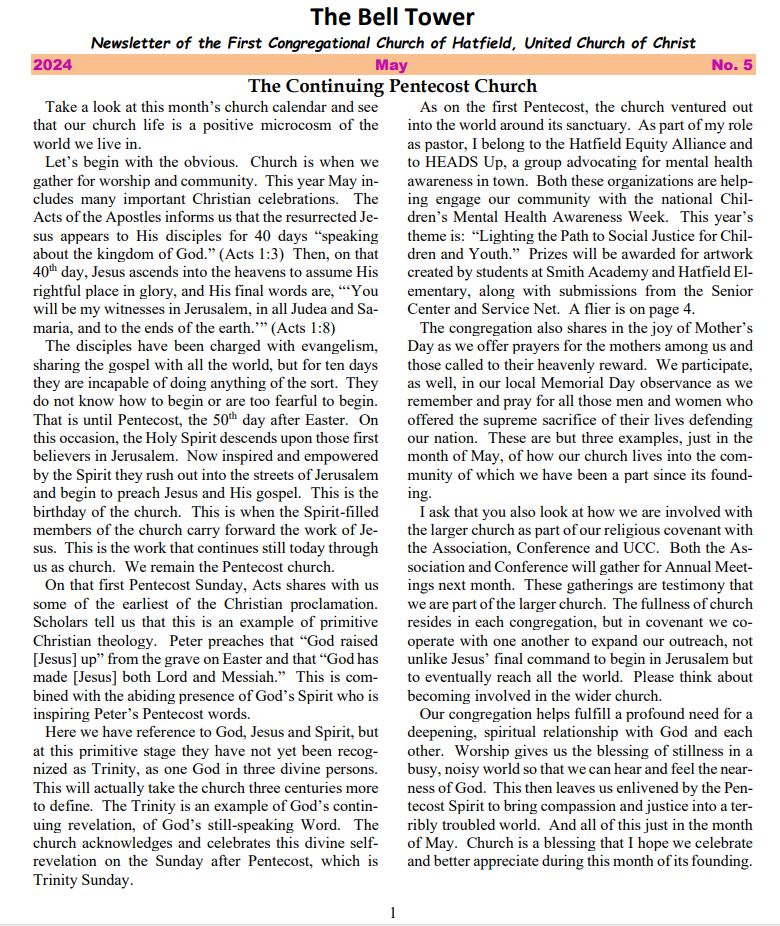
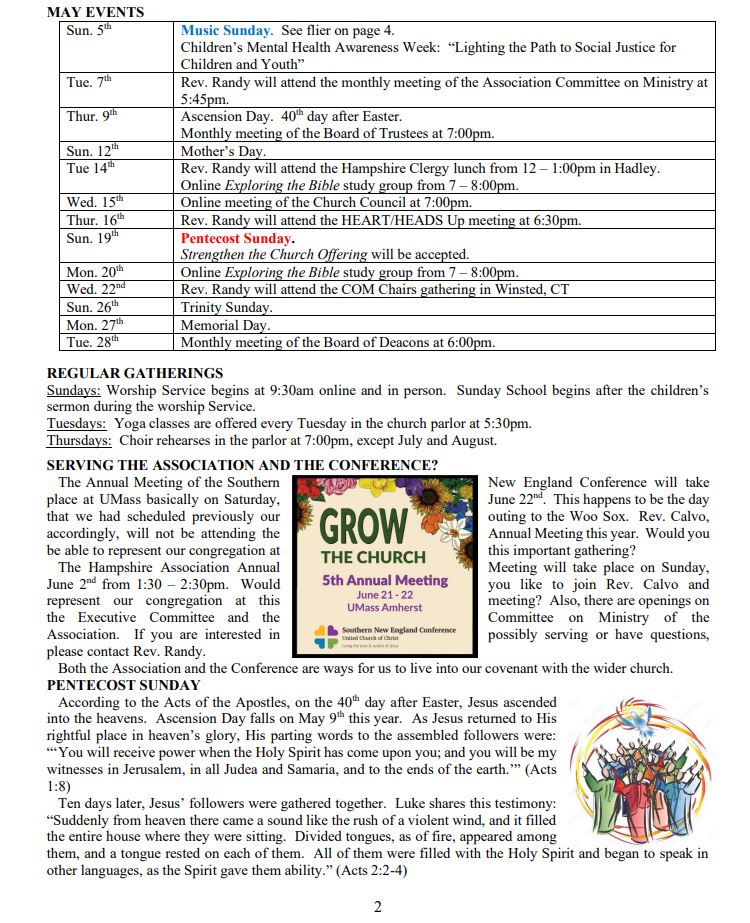
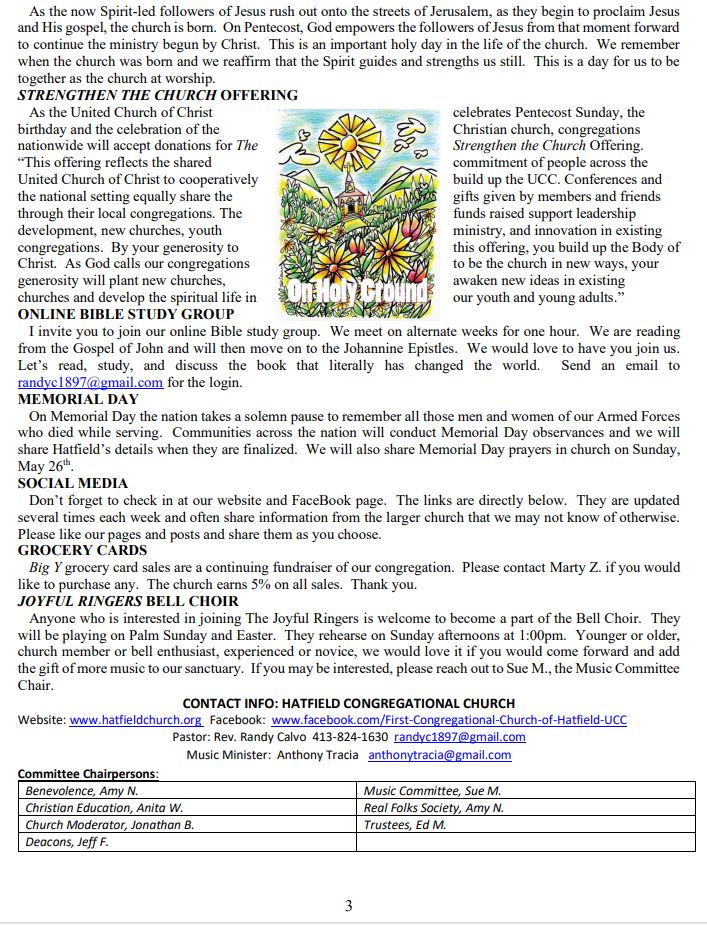
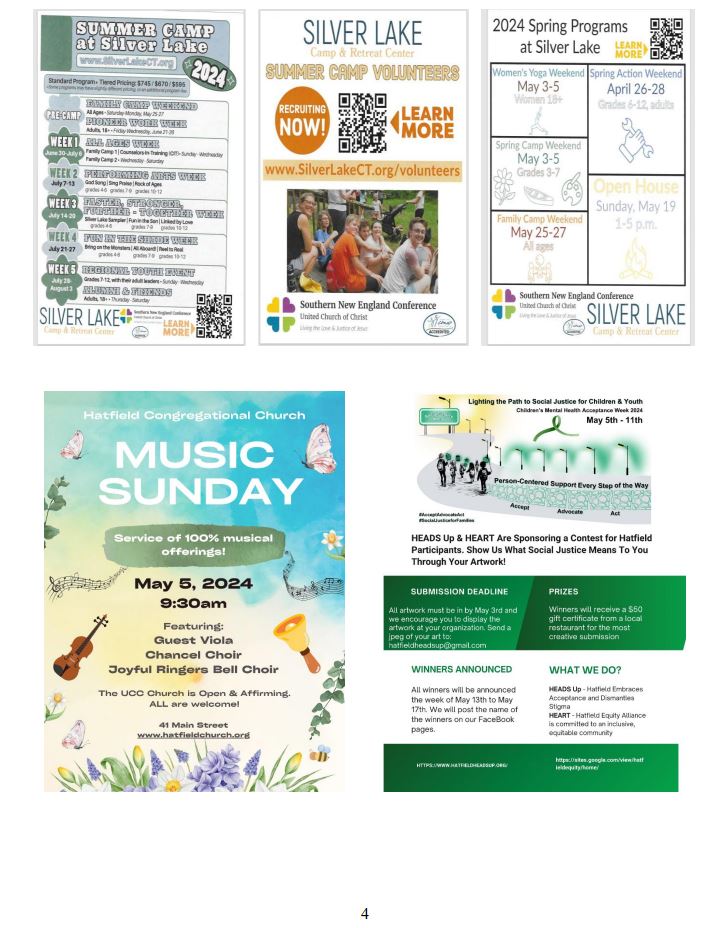
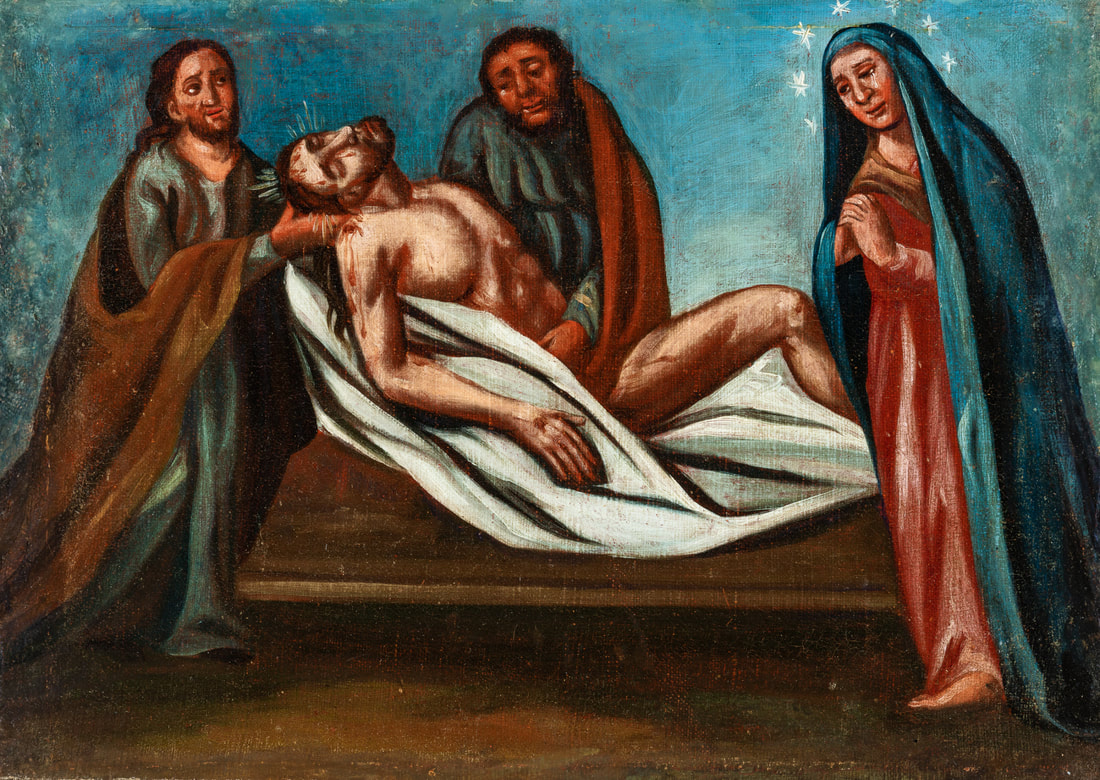
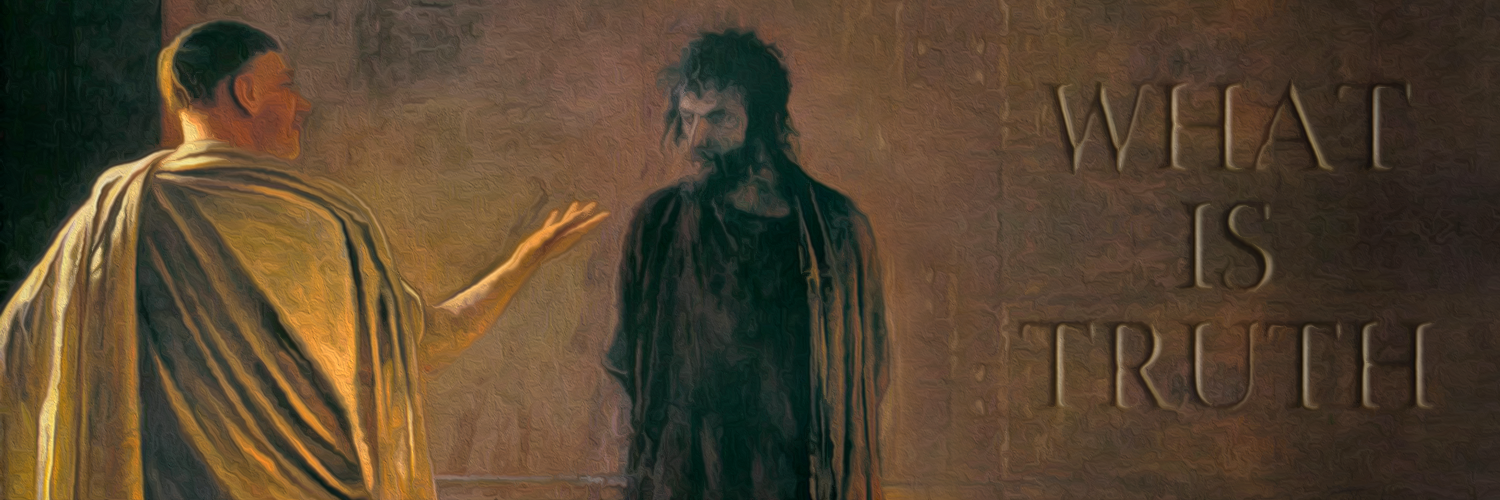
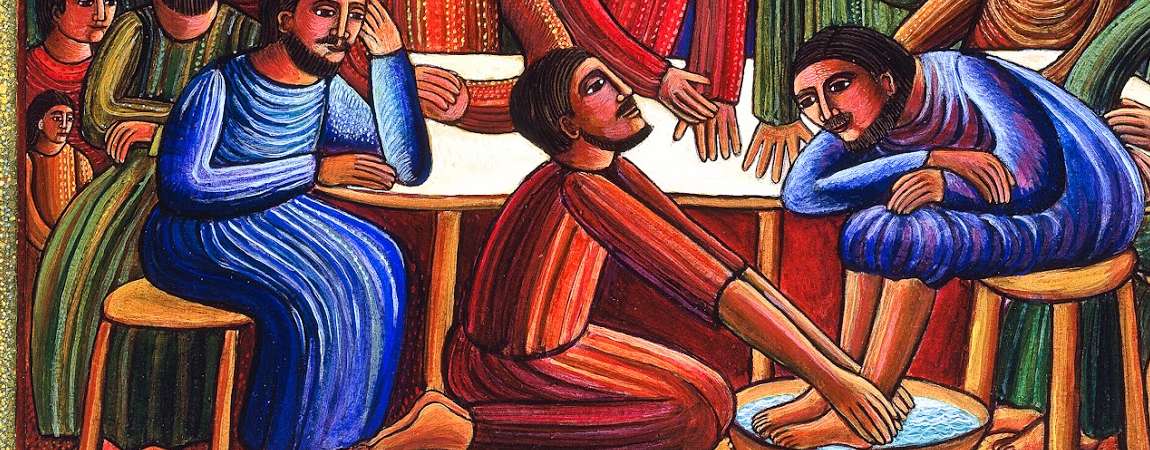


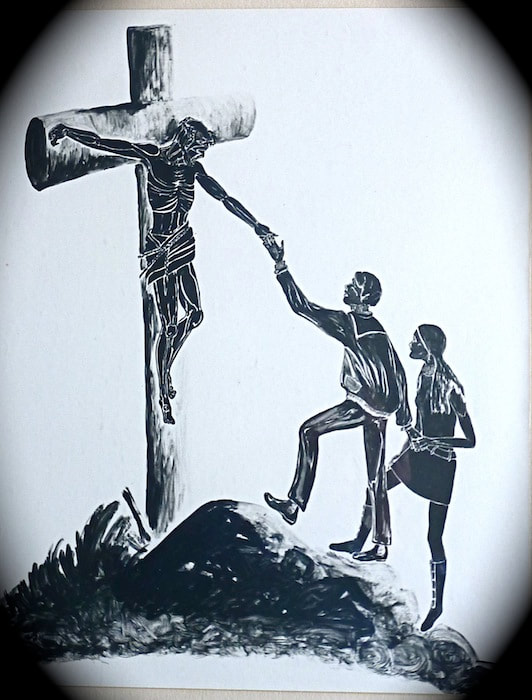



 RSS Feed
RSS Feed
